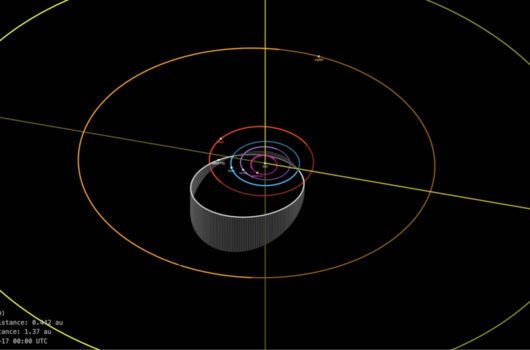Consequences of neutrino self-interactions for weak decoupling and big bang nucleosynthesis
Consequences of neutrino self-interactions for weak decoupling and big bang nucleosynthesis
View
Abstract
We calculate and discuss the implications of neutrino self-interactions for the physics of weak decoupling and big bang nucleosynthesis (BBN) in the early universe. In such neutrino-sector extensions of the standard model, neutrinos may not free-stream, yet can stay thermally coupled to one another. Nevertheless, the neutrinos exchange energy and entropy with the photon, electron-positron, and baryon component of the early universe only through the ordinary weak interaction. We examine the effects of neutrino self-interaction for the primordial helium and deuterium abundances and Neff, a measure of relativistic energy density at photon decoupling. These quantities are determined in, or may be influenced by, the physics in the weak decoupling epoch. Self-interacting neutrinos have been invoked to address a number of anomalies, including as a possible means of ameliorating tension in the Hubble parameter. Our calculations show that surprisingly subtle changes in BBN accompany some of these neutrino self-interaction schemes. Such minute signals require high-precision measurements, making deuterium the best abundance for BBN constraints in the models explored here.






